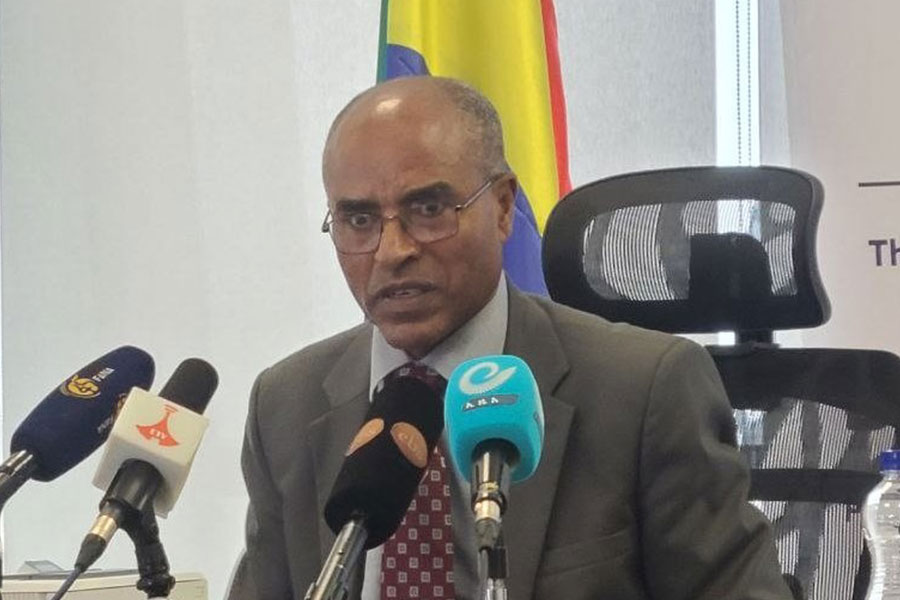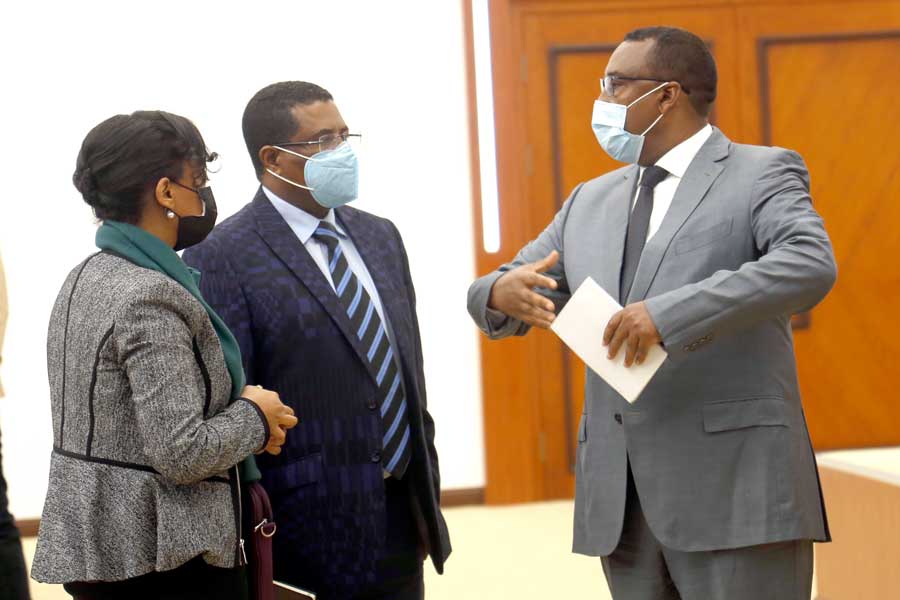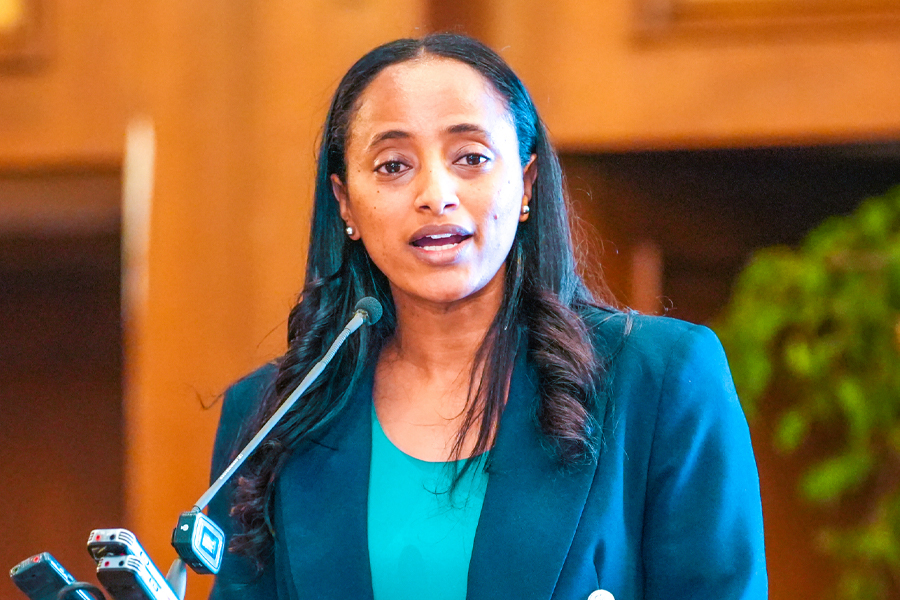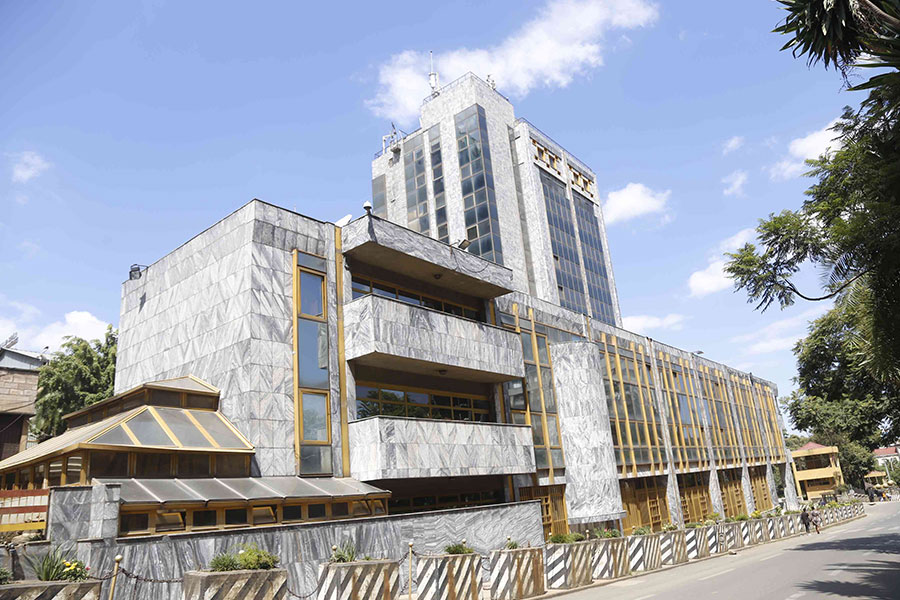
Fortune News | Apr 23,2025
Apr 24 , 2021
By KIDIST NEKATIBEB ( FORTUNE STAFF WRITER )
A national initiative to provide finance to rural households is to resume following a long delay due to travel restrictions caused by the COVID-19 pandemic.
Signed in January 2020, the third phase of the Rural Financial Intermediation Programme is set for launch with a 305-million-dollar budget, carried out by the Association of Ethiopian Microfinance Institutions (AEMI). Designed to reach out to 13.5 million people, it focuses on capacity-building for rural finance institutions and cooperatives; improving regulation and institutional discipline; and, facilitating the flow of funds in rural areas through credit financing services.
A significant portion of the funding comes from international development partners, with the largest contribution (112 million dollars) provided by the European Investment Bank. The federal government has a 51.9-million-dollar stake, while domestic financial institutions such as the Development Bank of Ethiopia (DBE) and the Commercial Bank of Ethiopia (CBE) have contributed 60 million in dollar value.
The first phase of the programme was implemented over a period of seven years, beginning in 2003, with financing of just under 89 million dollars. It was an initiative deemed "successful" by the International Fund for Agricultural Development (IFAD), one of the financers of the third phase.
The federal government and IFAD agreed to launch the second phase, with the financing of 248 million dollars. It also had lasted seven years, beginning in 2012.
The third phase, set to be completed in 2026, incorporates strategies to modernise the agricultural sector, building up institutional capacity through technology-led support, according to Teshome Kebede, director of the AEMI, which has 35 members.
The agricultural sector supports 80pc of Ethiopia’s population and accounted for two-thirds of the country's 2.1 billion dollars in export earnings recorded in the first eight months of the current fiscal year.
Kinfemichael Yibkaw, a finance expert with over two decades of experience, expects that the project will have significant positive impacts on agriculture, particularly as only 31pc of the population with access to banking and financial services.
He also believes the programme will have a major contribution in decreasing post-harvest loss, which leads to the waste of 30pc of agricultural products, through the mechanisation and modernisation of traditional farming methods.
PUBLISHED ON
Apr 24,2021 [ VOL
22 , NO
1095]

Fortune News | Apr 23,2025

Fortune News | Aug 01,2020

My Opinion | Jan 13,2024

Radar | Apr 30,2024

Radar | Apr 27,2025

Fortune News | Mar 02,2019

My Opinion | Nov 05,2022

Fortune News | May 24,2025

Fortune News | Dec 16,2023

Fortune News | Jul 06,2019

Dec 22 , 2024 . By TIZITA SHEWAFERAW
Charged with transforming colossal state-owned enterprises into modern and competitiv...

Aug 18 , 2024 . By AKSAH ITALO
Although predictable Yonas Zerihun's job in the ride-hailing service is not immune to...

Jul 28 , 2024 . By TIZITA SHEWAFERAW
Unhabitual, perhaps too many, Samuel Gebreyohannes, 38, used to occasionally enjoy a couple of beers at breakfast. However, he recently swit...

Jul 13 , 2024 . By AKSAH ITALO
Investors who rely on tractors, trucks, and field vehicles for commuting, transporting commodities, and f...

Oct 25 , 2025
The regulatory machinery is on overdrive. In only two years, no fewer than 35 new pro...

Oct 18 , 2025
The political establishment, notably the ruling party and its top brass, has become p...

Oct 11 , 2025
Ladislas Farago, a roving Associated Press (AP) correspondent, arrived in Ethiopia in...

Oct 4 , 2025
Eyob Tekalegn (PhD) had been in the Governor's chair for only weeks when, on Septembe...